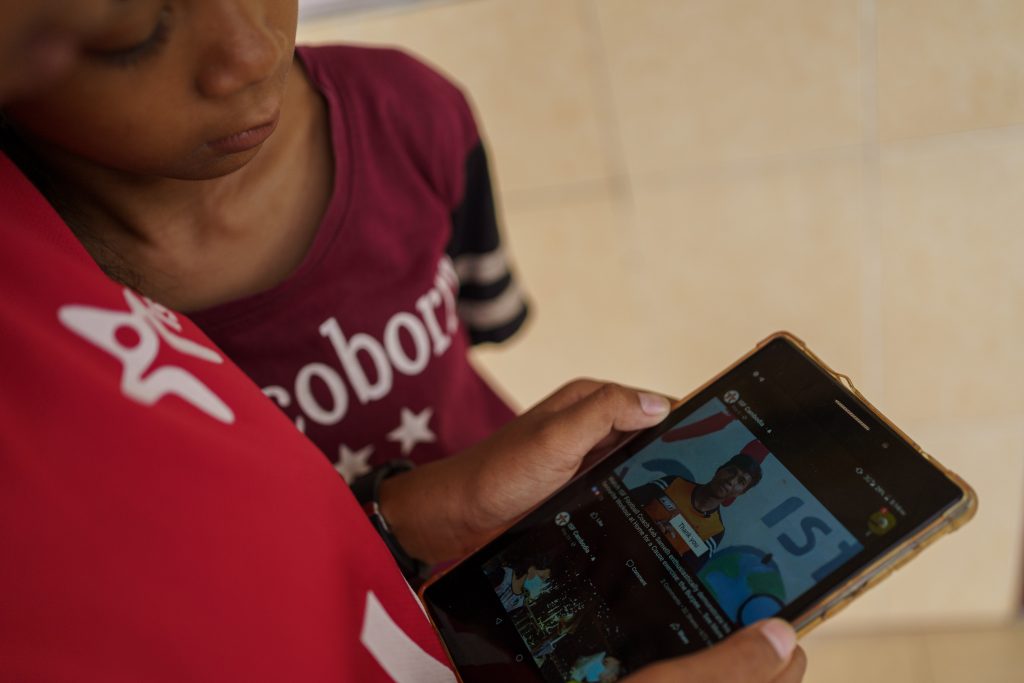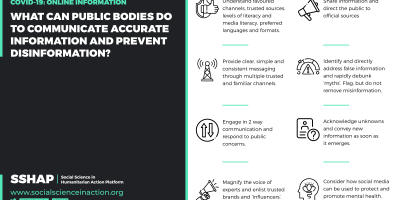Information epidemiology or infodemiology is the study of infodemics – defined by the World Health Organization as an overabundance of information, some accurate and some not, that occurs during a pandemic or other significant event that may impact public health. Infodemic management is the practice of infodemiology and may sit within the risk communication and community engagement (RCCE) pillar of a public health response. However, it is relevant to all aspects of preparedness and response, including the development and evaluation of interventions. Social scientists have much to contribute to infodemic management as, while it must be data and evidence driven, it must also be built on a thorough understanding of affected communities in order to develop participatory approaches, reinforce local capacity and support local solutions.
This brief explains how social science can inform infodemiology by making it more attuned to different social, political and cultural contexts and to the relationships between people and formal institutions. By providing an understanding of the contexts and cultures in which infodemics circulate, social scientists can help infodemic managers to work with people to make decisions based on the most accurate and appropriate information. The brief will first set out what needs to be done and then offer six ways to do it. The brief was developed by the Social Science in Humanitarian Action Platform (SSHAP) led by Santiago Ripoll, and by Jennifer Cole, Royal Holloway University of London, a WHO Infodemic Manager. The brief is the responsibility of the SSHAP.





